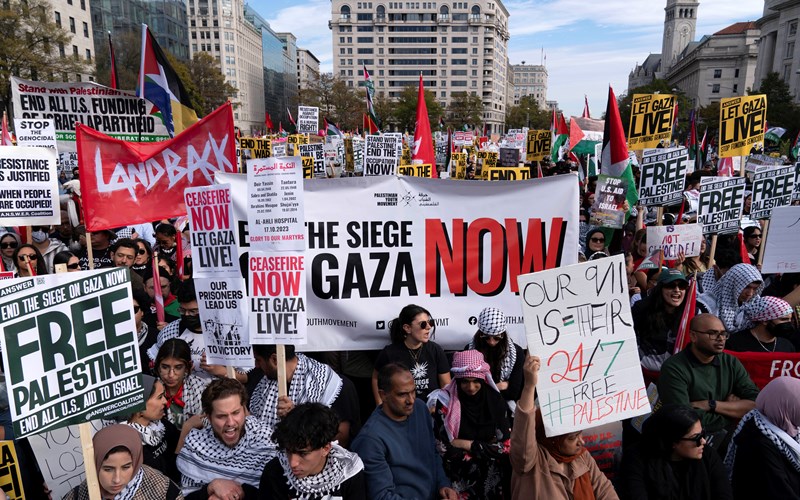Hate for Israel on many of America's college campuses and in many urban centers has its roots in critical theory – a Marxist-inspired philosophy that focuses on society to critique and challenge power structures. David Closson, director for the Center for Biblical Worldview at Family Research Council, argued that premise on Washington Watch Friday.
"For generations on our elite college campuses, we've been teaching young people to look at the world through the worldview of critical theory that fundamentally sees the world through the lens of oppressor and oppressed," Closson told show host Joseph Backholm.
Another part of the Israel picture is the ideology of settler colonialism, Closson said.

For the purposes of those who do not subscribe to the biblical view that the Jews were given the land by the God of creation, the Jews were also given the land in 1948 when the United Nation's adopted Resolution 181 that would divide Great Britain's former Palestinian territory into Jewish and Arab states as the British mandate ended in May of that year.
More than oppressor and oppressed, what is playing out in America is also linked to the idea that the Israelis don't have a moral claim to their land, Closson said.
"Because of that, their enemies – whether it's Hamas or Hezbollah or whoever it is – [believe they] can use any means whatsoever to evict them from the land," Closson explained.
Quinnipiac University released a poll last week that showed a great divide by age on support for Israel. Respondents were asked: "Do you approve or disapprove of the way Israel is responding to the Oct. 7 Hamas terrorist attack?" Overall, 50% approved, but only 32% of respondents aged 18-34 approved of Israel's actions since Hamas' attack. Fifty-eight percent of those aged 50 and older approved of Israel's response.
When asked, "How serious a problem do you think prejudice against Jewish people is today," 38% of respondents said it is "very" serious, and 37% said it is "somewhat" serious.
Giving a voice to criminal behavior
Critical theory taught for so long has given a voice to criminal behavior that did not previously exist, Closson said, because criminals are viewed by many as oppressed.
That line of thinking, for many, excuses Hamas' killing, raping, torture and kidnapping on Oct. 7. In the days after the attack, the Israeli government released images of a dead child in a pool of blood and the charred body of another child.
"This is a complicated issue, but if you allow that framework to guide your ethics then all of these horrifying means – well, they're justified because guess what, they're directed against the oppressor," Closson said.
"Ideas have consequences, and bad ideas can have sinister consequences. This is a gangrene cancer that unfortunately we've now seen has been inculcated in a lot of college campuses – and my goodness, this is dangerous."







